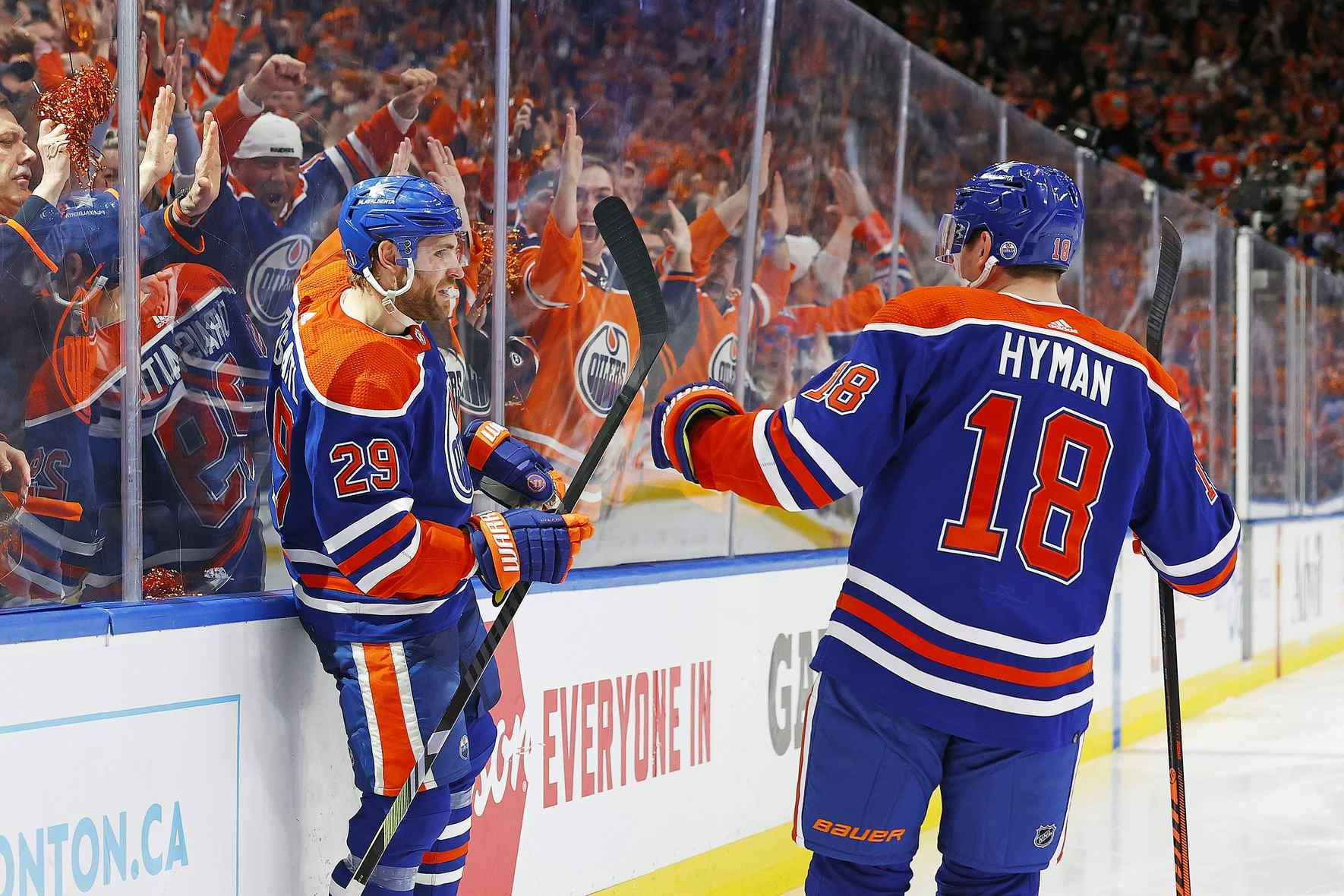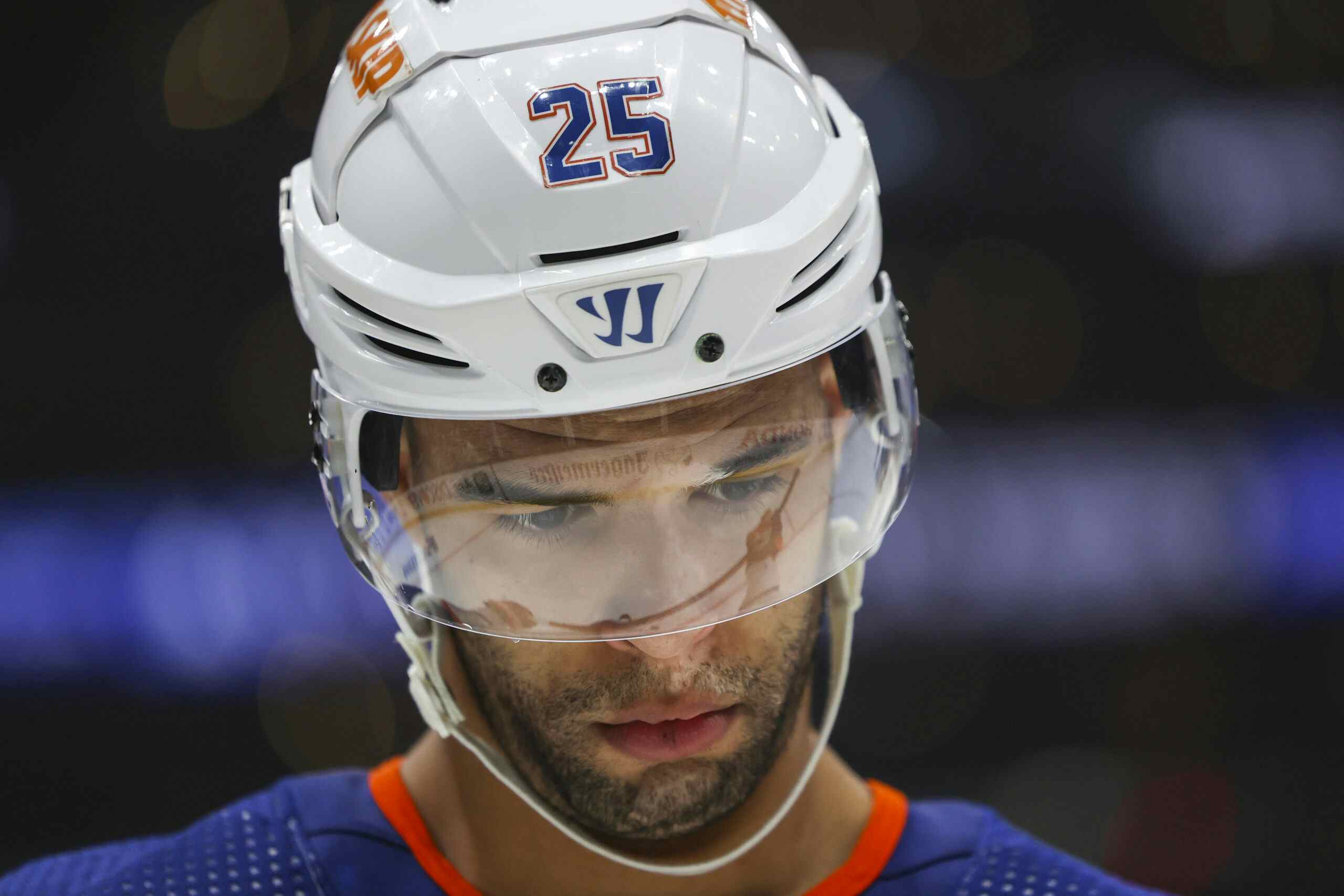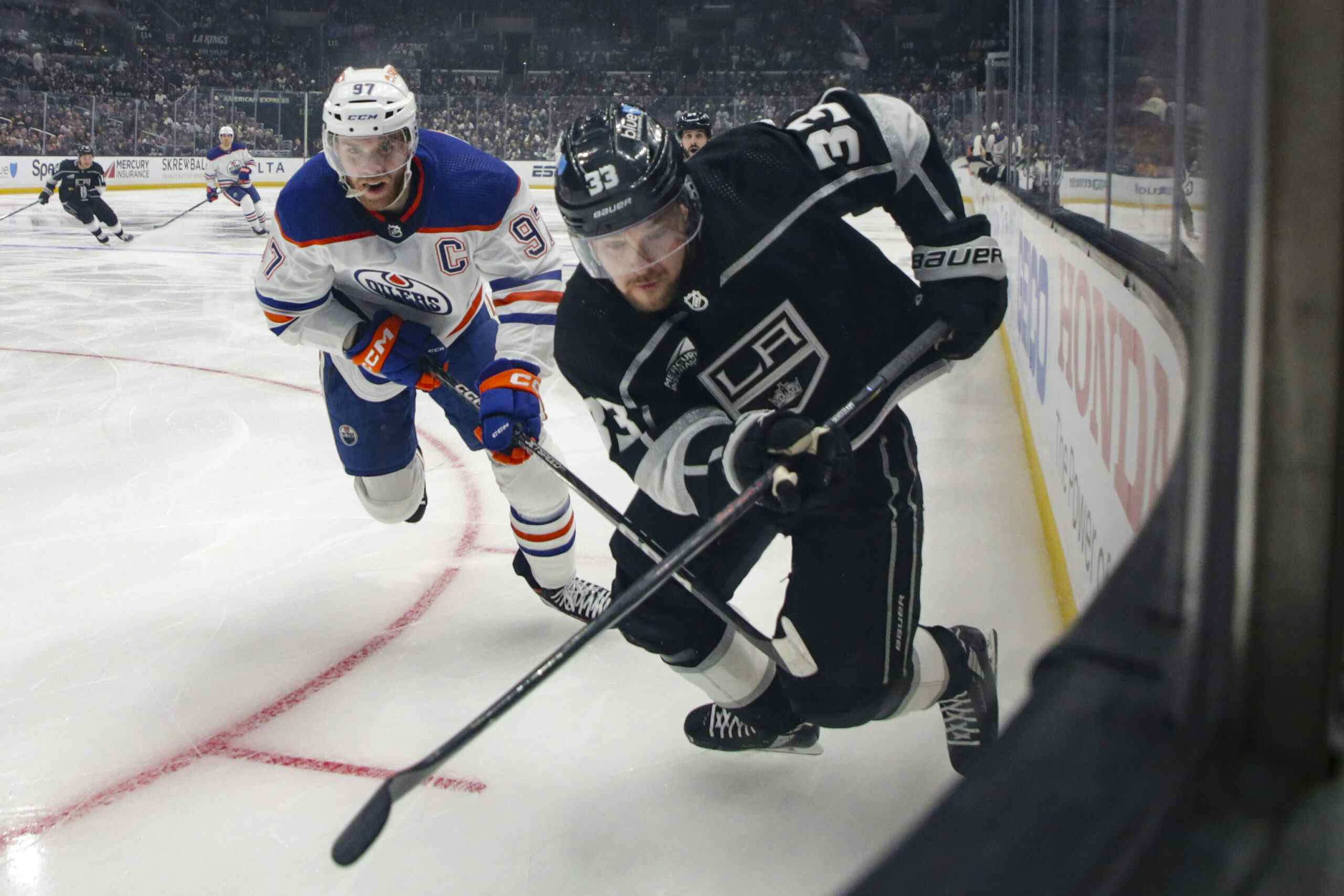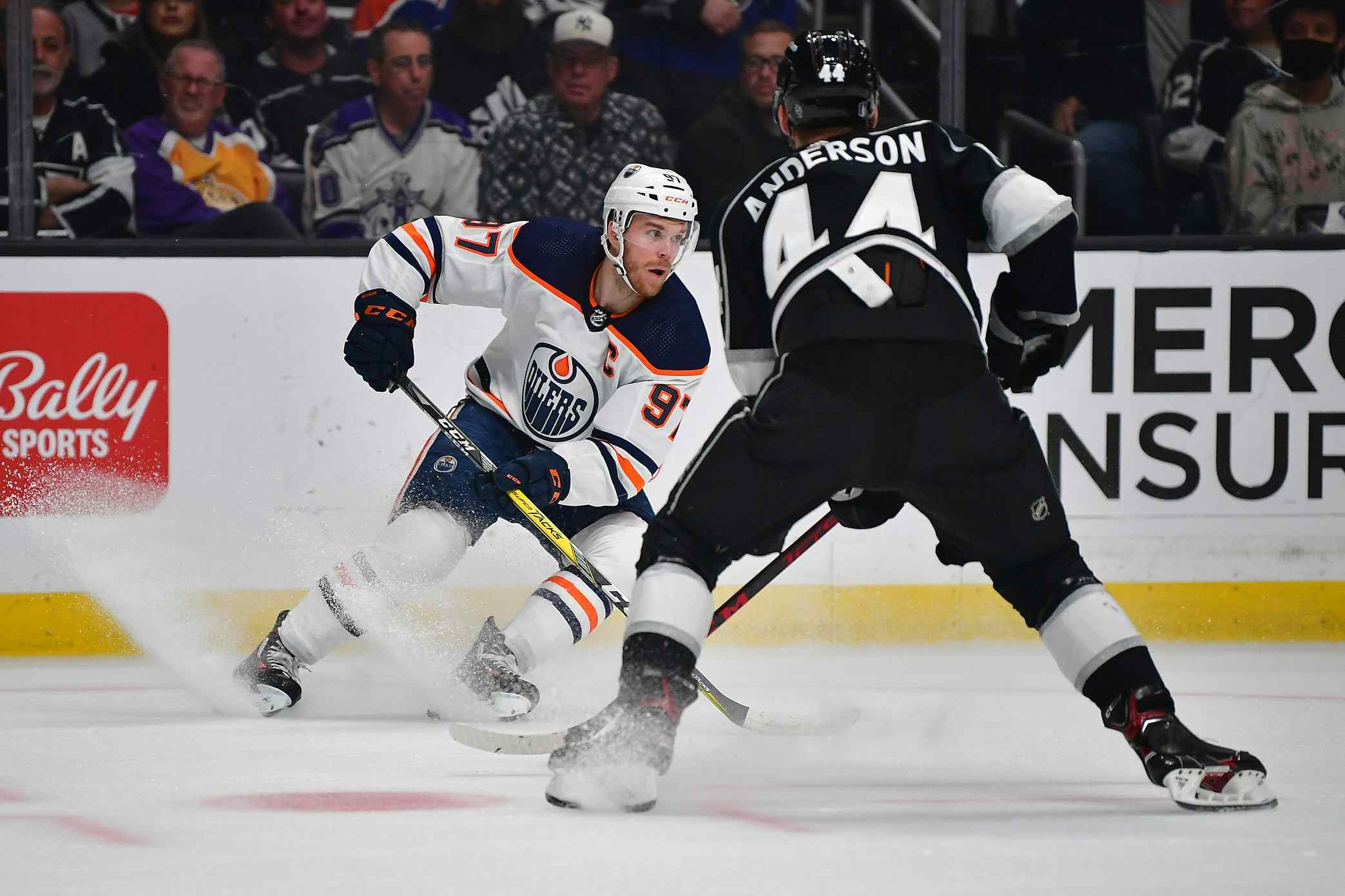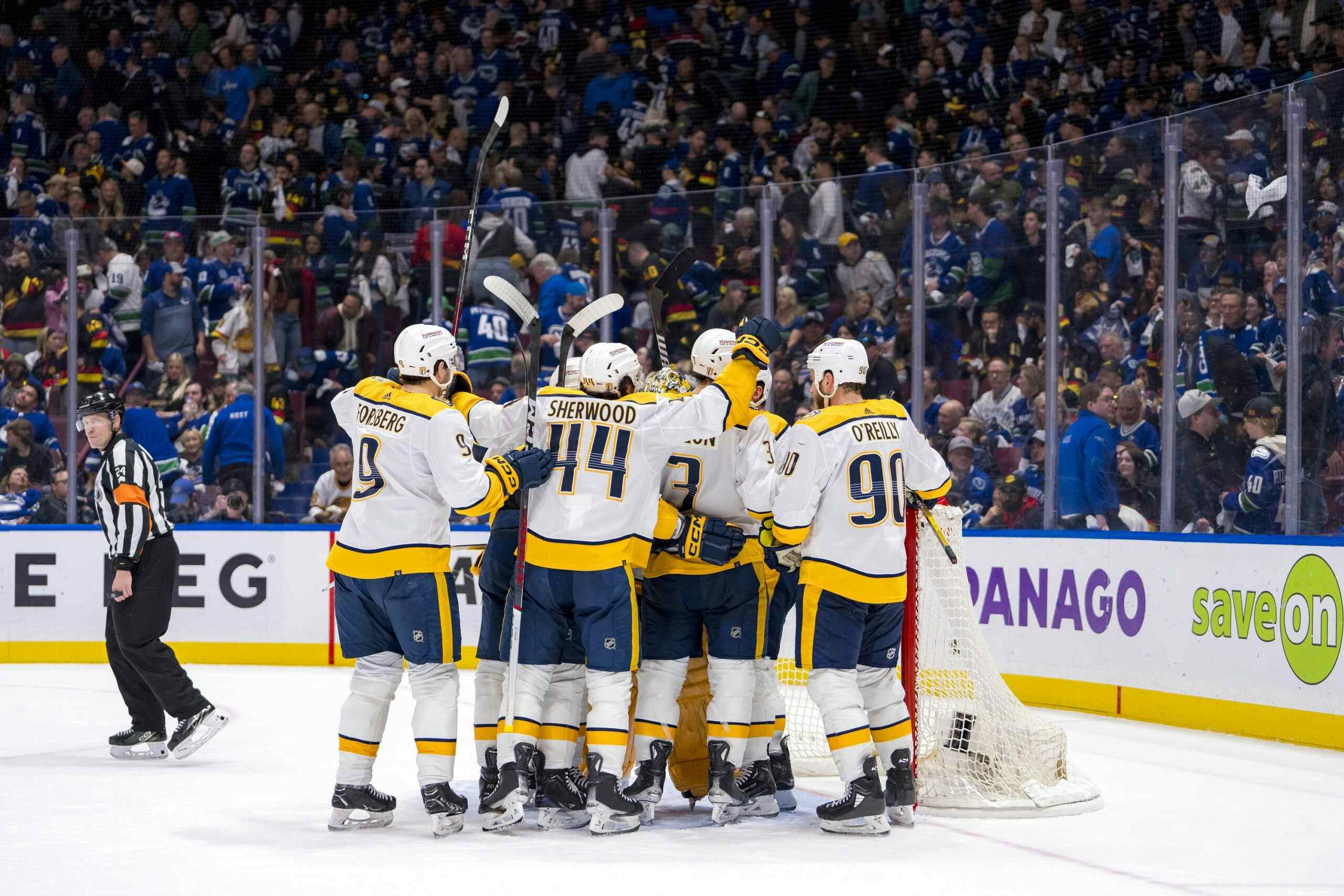Game Notes: Hawks @ Oilers, Game 2
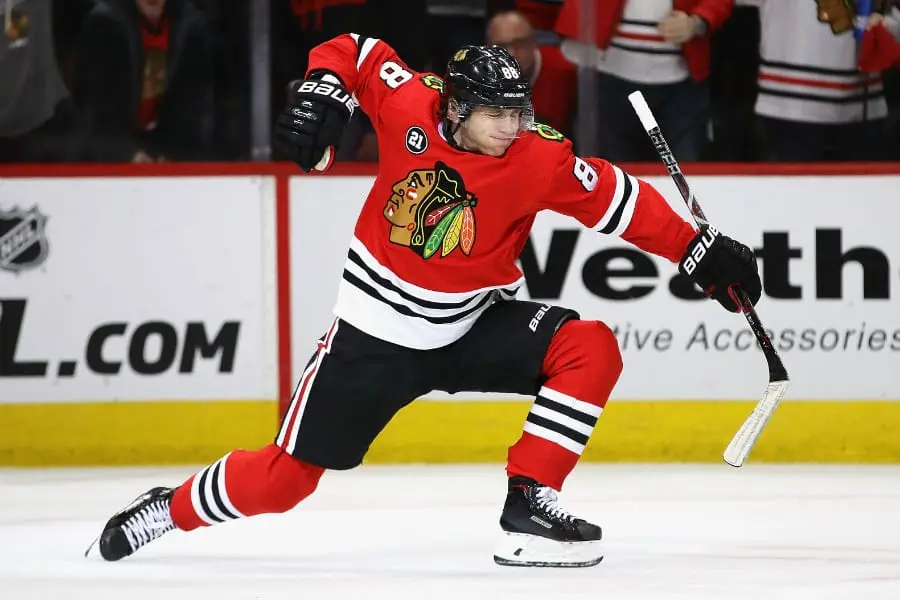
By Cam Lewis
3 years agoThat did not go according to plan. The Oilers got shocked by the Blackhawks in Game 1, dropping the series-opener by a score of 6-4. The team is now in an early must-win situation to avoid going down 2-0 in the best-of-five series.
1. The story of Game 1 was Dave Tippett’s decision to roll with veteran Mike Smith as the starting goaltender. That decision blew up in Tippett’s face. While Mikko Koskinen was the stronger of Edmonton’s two goaltenders this season Tippett went with Smith, who had been brilliant for him in the playoffs in the past. Back in 2012, Smith helped Tippett’s Coyotes reach the Western Conference Final with a .944 save percentage in 16 games.
2. Tippett went with his gut feeling and it didn’t work out. But, it’s just one game, so we don’t have to grill him too hard on it. If he rolls with Smith again, that’s a major gaffe, as the definition of insanity is doing the same thing over and over again and expecting a different result. Now, it’s time for him to move on from the Smith nostalgia and roll with Koskinen in net.
3. Koskinen relieved Smith after he allowed five goals on 18 shots. In his 30:46 of play, Koskinen stopped 18 of the 19 shots that Chicago threw on him. Koskinen made some of his best starts during the regular season as a follow-up to a loss by Smith. Interestingly enough, a couple of those instances came after losses to the Blackhawks.
In November, Smith took a loss to the Blackhawks, and then Koskinen stopped 49 of 52 shots in a win against the Flyers. More recently, in March, Smith allowed four goals on 21 shots in a loss to Chicago in which Koskinen came into the game in relief. The following game, Koskinen stopped 45 of 46 shots in a win against the Blue Jackets.
Let’s hope that this pattern continues.
4. While Smith certainly had a terrible showing in Game 1, it would be lazy to pin the loss entirely on him. The Oilers did not come out looking like a team with aspirations of winning the Stanley Cup. Chicago was the faster, more energetic team.
Chicago’s first goal was an ugly one as Smith went behind the net and misplayed the puck, handing an easy goal to Dylan Strome. That undoubtedly was deflating for the Oilers, but the difference between the two teams in Game 1 was how they responded to adversity. The Oilers got deflated and didn’t bounce back at all after that ugly game-tying goal. Meanwhile, when Chicago went down 1-0 after taking a dumb too-many-men-on-the-ice penalty, they kept their foot on the gas and didn’t allow the Oilers to build any momentum.
5. The 6-4 result flatters the Oilers as they were outplayed by a much wider margin than the score would indicate. The Blackhawks finished with a 44 to 35 lead in shot attempts at even-strength and put 27 even-strength shots on goal in comparison to Edmonton’s 17.
6. The speedy Oilers team that we saw during the regular season didn’t show up in Game 1. A key part of Edmonton’s success this season was how they continually used their speed to play a tight-checking game at even strength. They could forecheck hard, wear the other team’s defenders down, and they backchecked effectively, making life difficult for opponents on the rush.
Again, that wasn’t what we saw on Saturday. The Oilers looked slow, groggy, and disinterested. There’s merit to wondering if this was the result of them coming into the game not taking the Blackhawks seriously as an opponent or completely giving up after Chicago scored a few quick ones on Smith.
7. It’ll be interesting to see if Tippett makes a change in order to insert more speed into the lineup. Getting Gaetan Haas and Joakim Nygard in on the fourth line would make the Oilers much faster, which is probably better match against the quick and energetic Hawks.
8. One thing that did go well for the Oilers on Friday was their execution on the power-play. McDavid scored on the team’s first opportunity and Leon Draisaitl also buried a goal to bring the score to 4-2 early in the second period. All told Edmonton scored on three of their four power-play opportunities.
9. On the other side of that coin, the Oilers were nowhere near as effective on the penalty kill. During the regular season, the Oilers boasted an elite penalty kill while the Blackhawks had a mediocre power-play. It appeared, on paper, that this would be a major advantage for the Oilers during this series. But Chicago scored three power-play goals on five opportunities in Game 1. Edmonton’s penalty kill needs to tighten up in Game 2.
10. And, of course, as I mentioned earlier, the Oilers’ five-on-five play left a lot to be desired in Game 1. The narrative heading into the series was that the Oilers relied heavily on special teams to compensate for their mediocre play at even-strength, which isn’t a recipe for success in the playoffs. The Hawks managed to completely neutralize Edmonton’s offence at even strength.
The pairing of Calvin de Haan and Connor Murphy got teamed up against McDavid and Ryan Nugent-Hopkins and held the line to just seven shot attempts in eight minutes head-to-head. David Kampf, Chicago’s fourth-line centre, was also key in shutting McDavid down. The Leon Draisaitl and Kailer Yamamoto pairing wasn’t much more effective. In just under 15 minutes of even-strength play, that duo got outshot 16 to 13 and mustered just two high-danger chances.
11. Tippett might have to shuffle up his lines and go back to what worked during the regular season, which was playing Nugent-Hopkins, Draisaitl, and Yamamoto on a line together. It won’t make life any easier for McDavid, but that trio was a beacon of light for the Oilers at even strength during the regular season.
12. A big game-changer for the Hawks in Game 1 was the presence of Calvin de Haan on the blueline. Acquired in the off-season in a deal with Carolina, de Haan was limited to just 29 games after he had “season-ending” shoulder surgery. The four-month pause allowed de Haan to come back fully healthy and give the Blackhawks a rock on the blueline. We all know how bad Chicago’s blueline was this season, but having de Haan in the mix going up against Edmonton’s best forwards makes a huge difference. In 18:22 of even-strength time with de Haan on the ice, the Oilers didn’t register a single high-danger scoring chance.
13. It isn’t technically a must-win, but it might as well be. If the Oilers lose Game 2, they’re down 2-0 in a best-of-five. I wouldn’t like their chances of winning three straight if that happens.
14. I don’t know if it’ll make anyone feel any better, but the Penguins, the No. 5 seed in the East, also lost to their No. 12 seeded opponent, the Montreal Canadiens. Nobody is writing the Penguins off yet, and we shouldn’t be writing the Oilers off either. We saw many, many times in the regular season that this team can bounce back after a listless, terrible showing and look like a totally different team a couple of days later.
Recent articles from Cam Lewis

